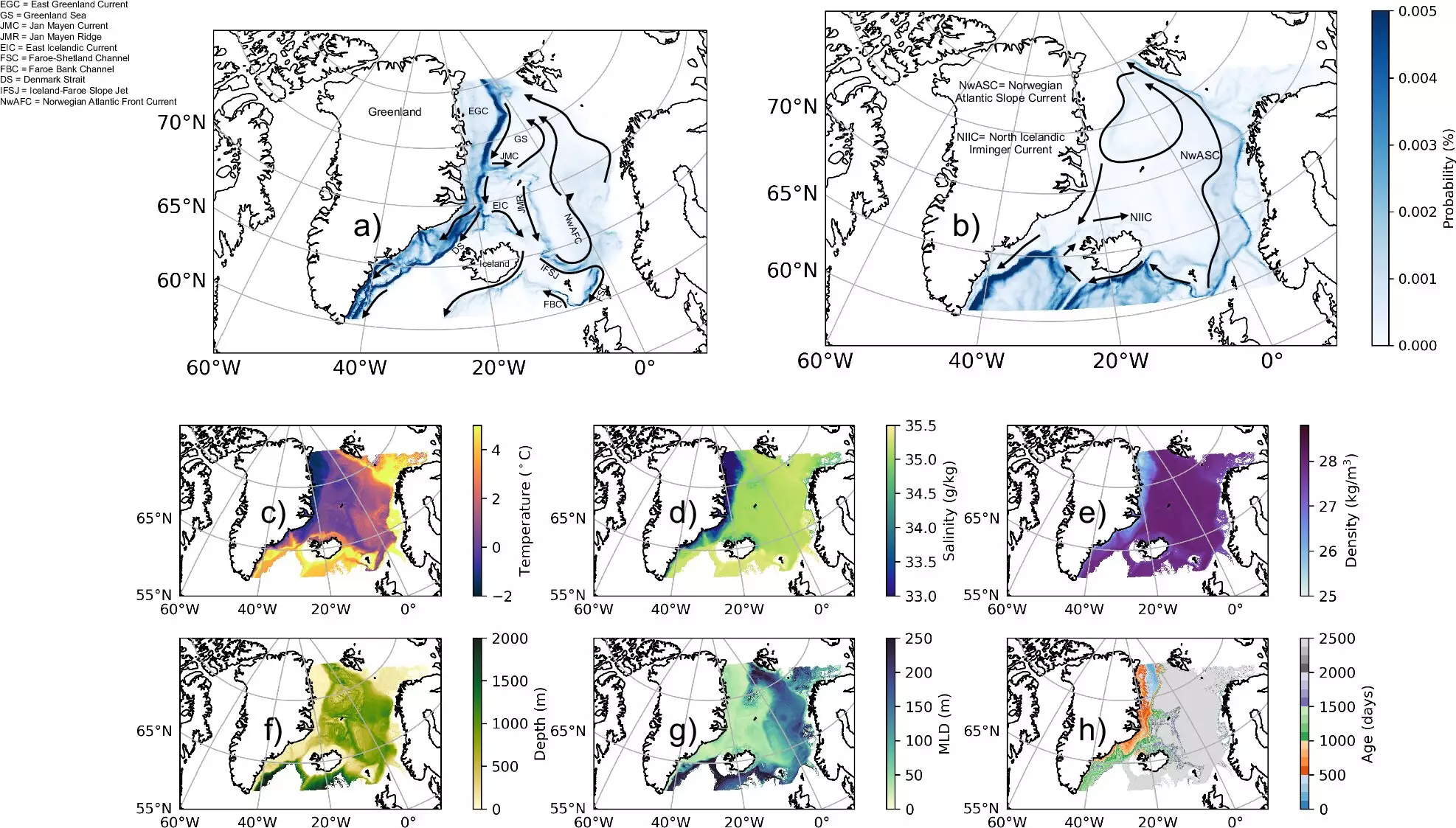A recent study conducted by researchers from various institutions sheds light on the importance of the mixing of Atlantic and Arctic waters in maintaining the Atlantic Meridional Overturning Circulation (AMOC). By analyzing ocean data from nearly the past four decades, the study offers valuable insights into how this process helps regulate Earth’s climate.
The AMOC acts as a massive ocean conveyor belt, transferring warm water from the tropics to the north and cold water from the north to the south. This circulation pattern plays a vital role in distributing heat across the planet, helping to moderate temperatures in regions like Northern Europe and the UK.
According to the study published in Nature Communications, the lower limb of the AMOC comprises 72% Atlantic waters and 28% Arctic waters. As warm water travels northward, it cools in the North Atlantic, becomes denser, and sinks to great depths before flowing southward. This dense water then mixes with colder, fresher Arctic waters in locations like the Denmark Strait, enhancing the overall strength of the AMOC.
The researchers estimate that the mixing of Atlantic and Arctic waters accounts for 33% of the transformation of warm, salty water into colder, denser water. This process plays a significant role in shaping global climate patterns and has implications for climate change scenarios.
Models suggest that as the planet warms due to climate change, the AMOC could weaken and slow down. A reduction in the circulation of the AMOC could lead to colder temperatures in Northern Europe and sea level rises along the eastern coast of the United States. It could also accelerate climate change by shortening the time carbon dioxide remains in the ocean.
The study underscores the importance of accurately representing water mixing processes in climate models to improve future climate predictions. Understanding the intricate interactions between our climate and global ocean circulation systems is crucial for managing and mitigating the impacts of climate change.
The mixing of Atlantic and Arctic waters plays a crucial role in sustaining the AMOC and regulating Earth’s climate. By gaining a deeper understanding of these processes, researchers can better predict and prepare for future climate scenarios. Additionally, the study highlights the urgent need to address climate change and its potential impacts on global climate patterns.


Leave a Reply